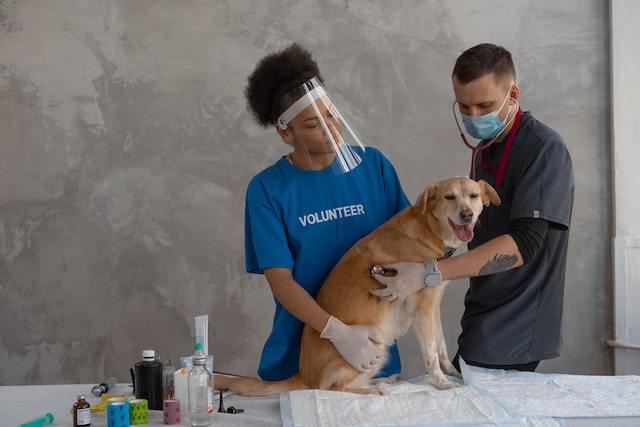What Do Shih Tzus Usually Die From [10 Things]
![What Do Shih Tzus Usually Die From [10 Things] What Do Shih Tzus Usually Die From](https://petcreeks.com/wp-content/uploads/2023/04/What-Do-Shih-Tzus-Usually-Die-From.jpg)
Let’s discuss the common question of what do Shih Tzus usually die from so that you can understand what to expect.
Shih Tzus are generally healthy dogs, but you should understand that they are living things too, every living thing dies at some point.
I will keep this post short and straight to the point, so keep reading…
What Do Shih Tzus Usually Die From
Shih Tzus usually die from old age, heart conditions, cancer, respiratory issues, liver disease, and kidney failure, in that order of frequency.
However, they can also be prone to other diseases such as keratitis, proptosis, and progressive retinal atrophy.
It is important to keep your Shih Tzu healthy by feeding them a balanced diet, providing fresh water, and monitoring their health regularly with the help of a veterinarian.
Common Causes of Death in Shih Tzu
Here are some of the most common causes of death in Shih Tzu dogs:
1. Old Age
Shih Tzus are susceptible to age-related health concerns such as arthritis, dental troubles, and organ failure as they get older.
Moreover, their immune system may deteriorate, leaving them more susceptible to infections and illnesses.
It’s crucial to give your Shih Tzu a healthy and balanced diet, regular exercise, and periodic veterinarian check-ups to monitor for any age-related health issues if you want to guarantee they have a high quality of life as they age.
Eventually, your Shih Tzu will pass away as they grow till the end of their life expectancy.
Learn more about Shih Tzu’s old age problems.
2. Cancers
One of the most prevalent cancers in Shih Tzus is skin cancer, which typically manifests as a raised, scaly, or ulcerated lump on the skin.
Another form of cancer that can strike Shih Tzus is lymphoma, which has an impact on the lymphatic system.
Shih Tzus are susceptible to mast cell tumors, which typically present as a lump or bump under the skin which can lead to death.
Weight loss, loss of appetite, tiredness, and lumps or bumps on the body are a few signs of cancer in Shih Tzus.
Early discovery of any abnormal masses or lumps on your Shih Tzu’s skin, together with routine veterinary checkups, can aid in the early diagnosis and treatment of cancer.
In some cases, surgery, chemotherapy, or radiation therapy may be necessary to treat cancer in Shih Tzus.
Learn more about signs that your Shih Tzu is dying.
3. Heart disease
Shih Tzus are susceptible to heart conditions such as dilated cardiomyopathy and mitral valve dysfunction.
These illnesses can result in congestive heart failure, which can accumulate fluid in the lungs and other organs and cause coughing, breathlessness, and fatigue.
Coughing, breathing problems, weariness, and weakness are all signs of heart disease in Shih Tzus.
Shih Tzus can prevent or treat heart disease with a good diet, consistent exercise, and frequent vet visits.
To control the symptoms of heart disease, medication may be required in some circumstances.
4. Respiratory problems
Shih Tzus may encounter breathing problems such as tracheal collapse, which can lead to breathing difficulty, coughing, and wheezing, because of their brachycephalic (short snout) face shape.
They are also susceptible to brachycephalic airway syndrome, which can result in breathing problems and blocked airways.
It’s crucial to maintain your Shih Tzu in a cool, well-ventilated environment to help prevent respiratory issues.
Don’t let your dog participate in vigorous activities that can impair breathing or expose them to excessive temperatures.
Losing weight might also benefit your Shih Tzu’s respiratory troubles if it is overweight. Surgery may be required in extreme situations.
5. Liver disease
A variety of things, including infections, exposure to chemicals, and genetic susceptibility, can cause Shih Tzus to develop a liver illness which can lead to death.
Lethargy, a loss of appetite, vomiting, and jaundice are all possible signs of liver disease in Shih Tzus.
The risk of liver disease can be decreased by feeding a high-quality diet and limiting exposure to pollutants.
Regular veterinary exams can also aid in the early detection of liver illness, and immediate treatment may aid in slowing the disease’s progression.
6. Kidney Disease
Shih Tzus’ kidney problems can be brought on by a variety of things, including infections, hereditary susceptibility, and aging.
Dehydration, weight loss, vomiting, and diarrhea are all possible signs of renal illness in Shih Tzu and can lead to death.
Kidney illness can be avoided or managed by giving your Shih Tzu access to clean water, feeding them a nutritious diet, and keeping track of their urine production.
To control the symptoms of renal disease, it may occasionally be essential to take medicine or alter your Shih Tzu diet.
7. Neurological Disorders
Shih Tzus are susceptible to neurological conditions such as seizures, which are bursts of uncontrollable trembling and convulsions.
Another neurological illness that can afflict Shih Tzus is degenerative myelopathy, which damages the spinal cord and can cause weakness and paralysis.
These diseases can be controlled in Shih Tzus by early diagnosis and treatment of any neurological issues.
To treat the symptoms of neurological disorders, medication or physical therapy may be required in some circumstances.
Learn more about why your Shih Tzu is shaking so much.
8. Pancreatitis
When the pancreas becomes inflamed, a condition known as pancreatitis develops.
Shih Tzus are susceptible to pancreatitis because of things like genetic susceptibility, high-fat diets, and obesity.
Vomiting, stomach pain, and appetite loss are all potential signs of pancreatitis.
You may prevent or treat this problem by feeding your Shih Tzu a low-fat diet, staying away from toxins, and keeping an eye out for any pancreatitis symptoms.
To control pancreatitis symptoms, it may occasionally be essential to take medication or alter one’s diet.
9. Diabetes
Diabetes is a disease that develops when the body struggles to control blood sugar levels.
Shih Tzus are susceptible to developing diabetes because of things including obesity, heredity, and aging.
Increased thirst, frequent urination, and weight loss are among diabetic symptoms.
It’s crucial to provide a balanced diet and refrain from giving high-carbohydrate sweets to assist manage diabetes.
Blood sugar levels can also be regulated by regular exercise.
Furthermore, regulating blood sugar levels and avoiding issues can be accomplished by delivering insulin as directed by your veterinarian.
Learn more about the food your Shih Tzu should avoid.
10. Obesity
Shih Tzu’s small size and love of eating make them susceptible to becoming overweight or obese.
Diabetes, heart disease, and joint issues are just a few of the health issues that obesity can cause.
A balanced diet and careful portion control are vital for assisting in the prevention or management of obesity.
Maintaining a healthy weight for your Shih Tzu can also be aided by regular exercise.
Work with your doctor to create a weight loss plan if your Shih Tzu is currently overweight.
Ways to prevent health problems that Lead to Death in Shih Tzu
Here are some common ways to prevent health problems that can lead to death in Shih Tzu dogs:
- Regular veterinary check-ups: Regular check-ups with a veterinarian can help catch health problems early and prevent them from becoming more serious.
- Proper nutrition: Feed your Shih Tzu a balanced and nutritious diet, with the right amounts of proteins, carbohydrates, fats, vitamins, and minerals.
- Exercise: Regular exercise can help keep your Shih Tzu at a healthy weight, which can reduce the risk of developing health problems.
- Dental care: Dental health is important for overall health. Regular brushing and professional cleaning can help prevent gum disease and tooth decay.
- Spaying or neutering: Spaying or neutering can help prevent certain health problems, such as certain types of cancer.
- Vaccinations: Keeping up-to-date with vaccinations can help protect against serious diseases, such as distemper, parvo, and rabies.
- Parasite prevention: Using flea, tick, and heartworm preventives can help protect your Shih Tzu from serious and potentially deadly diseases.
- Avoiding harmful substances: Keep your Shih Tzu away from harmful substances, such as toxins, household chemicals, and other dangerous items.
- Grooming: Regular grooming can help keep your Shih Tzu clean and healthy, and can also help you to spot any potential health problems early on.
FAQs
What are some common health issues that can affect Shih Tzus and potentially lead to their death?
Shih Tzus are prone to a number of health issues including breathing problems, heart disease, liver disease, kidney disease, and neurological disorders. These conditions can potentially lead to their death.
Can Shih Tzus die from food allergies?
While food allergies are generally less common than other types of allergies in dogs, Shih Tzus can be susceptible.
If a food allergy goes untreated and the dog continues to eat the offending food, it could lead to severe complications and potential death.
What is Shih Tzu Syndrome and can it be fatal?
Shih Tzu Syndrome is a term used to describe a variety of neurological disorders that can affect the breed.
While it is treatable in most cases, the severity of the condition can sometimes lead to death.
Can Shih Tzus die from physical injuries or trauma?
Yes, like any other breed of dog, Shih Tzus can die from physical injuries or trauma such as accidents, falls, or attacks by other animals.
How can I help my Shih Tzu live a longer and healthier life?
Some ways to help your Shih Tzu live a longer and healthier life would be to feed them a high-quality diet, give them regular exercise, take them to the vet for regular check-ups and to address any health issues promptly, and make sure they live in a safe environment.
Conclusion
To summarize, while Shih Tzus are typically healthy dogs, they are susceptible to certain health conditions that can lead to their death.
Respiratory issues, kidney disease, and cancer are examples of them.
As a good pet owner, you must keep an eye out for any signs of disease and take your pet to the vet on a regular basis.
You can help ensure that your Shih Tzu has a long and happy life at your side by providing proper care and attention.



![Dog Traumatized After Spay [Helpful Tips] Dog Traumatized After Spay](https://petcreeks.com/wp-content/uploads/2023/02/Dog-Traumatized-After-Spay-768x555.jpg)

![Dog Drinking a Lot of Water And Not Eating [Explained] Dog Drinking a Lot of Water And Not Eating](https://petcreeks.com/wp-content/uploads/2023/02/Dog-Drinking-a-Lot-of-Water-And-Not-Eating-768x555.jpg)
